#HVAC systems
Text
Decoding HVAC Systems: A 2023 Guide to Basics, Functions, and the Latest System Types :
Unlock the secrets of HVAC technology with our in-depth exploration of the fundamental concepts, operational mechanisms, and cutting-edge system types shaping the industry in 2023.
2 notes
·
View notes
Text
Interview with Kip Bradford About HVAC Systems on Mars
To settle on Mars, one of the big needs for effective space colonization will for HVAC. In this episode of interviewing experts, I talk to Kipp Bradford about how to creating and break HVAC on Mars.
Over the past decade, Kipp has distinguished himself as a prolific high-tech innovator. With a penchant for creating new products and finding new applications for existing technologies, he holds…

View On WordPress
10 notes
·
View notes
Text
The Most Common Repairs for Residential HVAC Systems
Residential HVAC (Heating, Ventilation, and Air Conditioning) systems are essential to any home, as they help maintain a comfortable and healthy indoor environment. However, like any other mechanical system, HVAC systems can develop problems over time, and regular maintenance and repairs are necessary to ensure they function efficiently. Here are some of the most common repairs for residential HVAC systems:

Common repairs for residential HVAC systems
Dirty or Clogged Air Filters
Air filters filter dust, debris, and other particles from the air before it is circulated through the HVAC system. If the filters become dirty or clogged, they can reduce the system's efficiency and even cause it to shut down. Regular filter replacement or cleaning is necessary to prevent this problem.
Refrigerant Leaks
Refrigerant is the substance that cools the air in your HVAC system. If there is a leak in the refrigerant line, the system cannot cool the air properly. This problem requires a professional technician to locate and repair the leak and recharge the system with the appropriate amount of refrigerant.
Thermostat Issues
A malfunctioning thermostat can cause the HVAC system to turn on and off at the wrong times or not turn on at all. A technician can diagnose and repair problems with the thermostat.
Electrical Problems
Faulty electrical connections, such as loose wires, can cause the HVAC system to malfunction or not turn on at all. An experienced technician can identify and repair electrical problems.
Dirty or Clogged Condenser Coil
The condenser coil is responsible for releasing the heat from the refrigerant outside the home. If it becomes dirty or clogged, it can reduce the efficiency of the system and even cause it to shut down. Regular cleaning is necessary to prevent this problem.
Blower Motor Problems
The blower motor is responsible for circulating the air through the HVAC system. If it malfunctions, the system cannot distribute the air properly. A technician can diagnose and repair problems with the blower motor.
Compressor Issues
The compressor compresses the refrigerant and pumps it through the system. If it malfunctions, the HVAC system cannot cool the air. This problem requires a professional technician to diagnose and repair it.
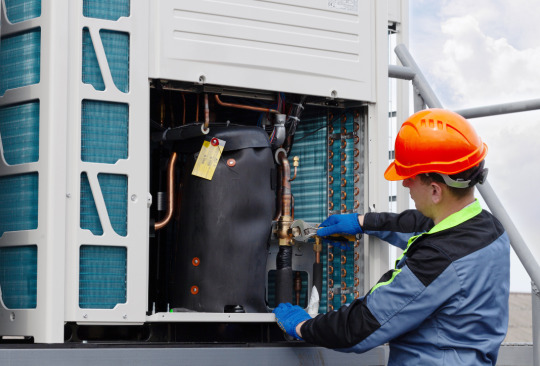
Regular maintenance and repairs are essential to keep your residential HVAC system functioning efficiently and reliably. If you suspect that your HVAC system has a problem, it's important to contact a qualified technician to diagnose and repair the issue promptly.
#common#repairs#residential#hvac systems#heating#ventilation#air conditioning#residential hvac#clogged air filters#refrigerant leaks#thermostat issues#electrical problems#condenser coil#blower motor#compressor issues#regular maintenance
2 notes
·
View notes
Text
The Ultimate Guide to Furnace Installation Excellence
In the pursuit of a snug home environment, a dependable furnace plays a pivotal role, particularly during chilly weather spells. Whether you're replacing an outdated unit with a more efficient model or initiating the furnace setup for the first time, executing the installation correctly is paramount for sustained performance and energy conservation.

1: Preparation Phase
Before delving into the installation procedure, comprehensive preparation is imperative. Here are the fundamental steps to undertake:
Assess Your Heating Requirements: Based on your dwelling's dimensions, insulation quality, and prevailing climatic conditions, ascertain the suitable furnace size and efficiency rating.
Budget Allocation: Establish a budget encompassing the furnace unit's cost, installation charges, and any additional materials or enhancements.
Research and Engage a Reputable Contractor: Scout for licensed and seasoned HVAC contractor boasting positive testimonials and certifications. Solicit multiple quotes to juxtapose prices and services offered.
Permits and Compliance: Familiarize yourself with local building codes and regulations pertaining to furnace installations. Secure any mandatory permits prior to commencing the installation procedure.
2: Installation Procedure
Once the preparatory groundwork is laid, it's time to proceed with the installation. Here's a synopsis of the installation process:
Removal of Pre-existing Equipment: In the event of replacing an existing furnace, the prior unit must be safely disconnected and dismantled. This entails cutting off power supply, disconnecting gas lines, and appropriately disposing of the old apparatus.
Assessment of Ductwork: Scrutinize the existing ductwork for leaks, damages, or inadequacies in sizing. Rectify any identified issues to ensure optimal airflow and efficiency.
Installation of New Unit: Position the new furnace in the designated spot, ensuring adequate clearance for ventilation and maintenance. Connect the unit to the ductwork, gas line, and electrical supply as per manufacturer guidelines.
Testing and Calibration: Post-installation, the furnace necessitates comprehensive testing to confirm flawless operation and efficiency. This encompasses checks for gas leaks, airflow, temperature regulation, and safety protocols.
Final Evaluation: Schedule a conclusive inspection with local authorities or regulatory bodies to verify compliance with building codes and safety standards.
3: Maintenance and Enhancement
Regular maintenance is indispensable for maximizing the longevity and efficiency of your freshly installed furnace. Here are some maintenance pointers:
Regular Filter Replacement: Swap out air filters every 1-3 months to uphold optimal airflow and indoor air quality.
Annual Servicing: Arrange annual maintenance appointments with a proficient HVAC technician to inspect and fine-tune your furnace for peak performance.
Thermostat Monitoring: Employ programmable or smart thermostats to regulate temperature settings and optimize energy consumption.
Timely Issue Resolution: Promptly address any unusual sounds, odors, or performance irregularities to forestall further deterioration and ensure uninterrupted comfort.
FAQs
What is the typical duration of furnace installation?
The duration of furnace installation varies contingent on factors such as installation complexity, prevailing condition of existing ductwork, and the type of furnace being installed. On average, a straightforward installation can be completed within a day, whereas more intricate installations may extend beyond.
What are the indicators signaling a need for furnace replacement?
Several cues suggest it might be time to replace your furnace, including recurrent breakdowns, escalating energy bills, uneven heating, unusual sounds, and outdated equipment. If your furnace surpasses the 15-year mark or necessitates costly repairs, investing in a new, energy-efficient unit might prove more cost-effective in the long haul.
By adhering to this definitive guide to furnace installation excellence and collaborating with a reputable HVAC expert, you can make sure a seamless and efficient installation process, furnishing optimal comfort and energy savings for years to come.
#furnaces#furnace maintenance#hvac systems#furnace installation#furnace repair#furnace replacement#furnace service
0 notes
Text
COMMERCIAL HVAC SYSTEMS

With decades of experience as a commercial HVAC company specializing in design-build projects throughout Central Iowa, Bell Brothers can create the best, most efficient design to match your project’s budget — and assure optimal occupant comfort within your new or remodeled building. Part of our process is conducting a detailed, computerized load analysis that takes special requirements for building ventilation and energy savings into account. We’ll determine the most appropriate solution from our wide variety of high-efficiency heating and air conditioning commercial application products, including:
#air conditioning#commercial#BellBrothers#Des Moines#Iowa#hvac installation#hvac contractors#hvac repair#hvac services#hvac systems
1 note
·
View note
Text
4 Basic Categories of HVAC Systems
Alright, folks, let’s talk about something that keeps us feeling cozy and comfortable year-round – HVAC systems! You may have heard this term thrown around, but what exactly does it mean? HVAC stands for Heating, Ventilation, and Air Conditioning, and it’s all about creating the perfect indoor climate for our homes and businesses. Now, let’s dive right in and discover the 4 basic categories of HVAC systems that make it all happen. This content is originally published here: https://bluebirdheatingandair.com/4-basic-categories-of-hvac-systems/
0 notes
Text
Understanding HVAC Systems: What Every Homeowner Should Know
HVAC systems, an acronym for Heating, Ventilation, and Air Conditioning, are the unsung heroes of our homes, ensuring comfort regardless of the season. For many homeowners, however, the complexity of HVAC systems can be daunting. This article demystifies HVAC systems, offering essential insights that every homeowner should know, thereby empowering you to make informed decisions about your home’s heating, cooling, and air quality.
The Basics of HVAC Systems
At its core, an HVAC system regulates the indoor climate and ensures adequate air quality in your home. It does this through three main functions: heating, ventilation, and air conditioning. The heating component can include furnaces or heat pumps that provide warmth during colder months. The ventilation part involves the exchange of indoor and outdoor air to maintain air quality and moisture levels. Lastly, the air conditioning aspect cools down your home during warm periods, removing excess humidity in the process.
Types of HVAC Systems
There are several types of HVAC systems, each catering to different needs and home layouts. Central HVAC systems are among the most common, offering a complete solution for heating, ventilation, and air conditioning through a network of ducts. Ductless mini-split systems provide a versatile and energy-efficient alternative for homes without ductwork, allowing for individual room control. Heat pumps stand out for their ability to provide both heating and cooling efficiently, making them an excellent choice for moderate climates.
Energy Efficiency and Savings
Energy efficiency is a crucial factor in choosing an HVAC system. Modern units are designed to provide maximum comfort while minimizing energy use. Look for systems with a high Seasonal Energy Efficiency Ratio (SEER) for air conditioning and a high Annual Fuel Utilization Efficiency (AFUE) rating for heating. These units may come with a higher upfront cost but can lead to significant savings on utility bills over time.

The Importance of Regular Maintenance
Regular maintenance is key to extending the life of your HVAC system and ensuring it runs efficiently. Simple tasks like changing air filters every few months can significantly improve air quality and system performance. Scheduling annual professional check-ups for your HVAC system can prevent minor issues from turning into major repairs, ensuring your system operates at peak efficiency year-round.
Choosing the Right HVAC System
Selecting the right HVAC system for your home involves considering several factors, including the size of your home, climate, and personal comfort preferences. Consulting with a professional HVAC contractor who can assess your home’s specific needs and recommend the most suitable system is invaluable. Classic Heating & Air, with its team of NATE-certified technicians, offers personalized advice and solutions tailored to your unique requirements.
Why Professional Installation Matters
Professional installation is paramount to the performance and longevity of your HVAC system. Improper installation can lead to inefficiencies, increased wear and tear, and even premature system failure. Classic Heating & Air guarantees expert installation, ensuring your system is set up for optimal performance from day one.
Conclusion
An HVAC system plays a vital role in maintaining a comfortable and healthy living environment. Understanding the basics of how these systems work, recognizing the importance of energy efficiency, and acknowledging the need for regular maintenance can greatly impact your home’s comfort and your wallet. Whether you’re installing a new system, replacing an old one, or simply looking for maintenance tips, Classic Heating & Air stands ready to provide expert guidance and services. Remember, a well-informed homeowner is a comfortable homeowner.
0 notes
Text
Repair Your HVAC System With The Skillful Professionals in Stuart
Your home is your sanctuary, a place where you relax and spend quality time with your loved ones. After a long day, there's nothing like coming back to the comfort of your own abode. It's where you recharge, unwind, and feel refreshed. From its charming decor to its cozy atmosphere, your home is where you truly belong.

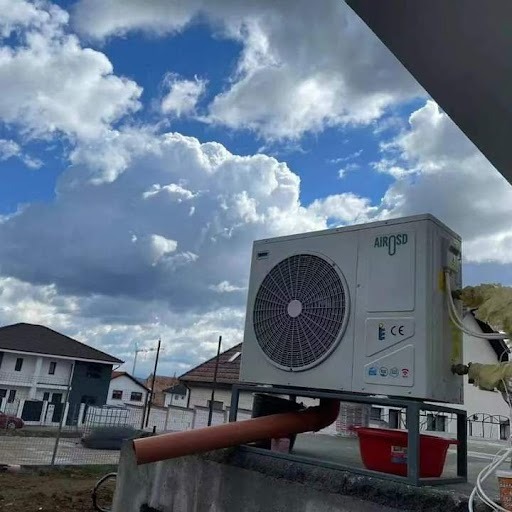
The Comfort of HVAC Systems
In both scorching summers and freezing winters, your home's HVAC (Heating, Ventilation, and Air Conditioning) system ensures your comfort. When the sun beats down mercilessly outside, you can retreat indoors to enjoy a cool nap or listen to your favorite tunes, all thanks to your trusty air conditioner. And when the cold winds blow, your heating system keeps you warm and snug, perfect for curling up with a good book and a steaming cup of coffee.
Maintenance Matters
Choosing the right HVAC system for your home is just the beginning. To keep it running smoothly and efficiently, regular maintenance is key. Proper upkeep not only ensures optimal performance but also extends the lifespan of your system. However, even with the best care, there comes a time when your HVAC system may need replacing.
Signs It's Time for Service
Keep an eye out for these signs that indicate your HVAC system needs attention:
For Air Conditioning:
Unusual noises from the unit
Reduced airflow
Inadequate cooling
Ice buildup or water leakage
Frequent cycling on and off
For Heating:
Reduced airflow through vents
Unusual noises
Inadequate heating
Higher utility bills in winter
Don't Delay, Call a Professional
If you notice any of these signs, it's crucial not to ignore them. Delaying repairs can lead to further damage and discomfort. Instead, enlist the help of a professional HVAC technician to diagnose and address the issue promptly.
Choosing the Right Repair Service
With so many options available, selecting the right HVAC repair service can seem daunting. Whether you need heating or AC repair in Stuart, take your time to research and choose a reputable provider. Look for experience, expertise, and reliability to ensure your home stays comfortable year-round.
Your home is your haven, and your HVAC system plays a vital role in maintaining its comfort and coziness. By staying vigilant and addressing any issues promptly, you can ensure your home remains a welcoming retreat for years to come.
Do you have any experience of hiring expert for repairing HVAC system? In case you don't have, then consult with your friends and family members and then hire them. However, make sure the fact that the professional is licensed and knowledgeable in this profession and offer quality services to the clients. Moreover, you can visit the website to check the review of the previous customers. And if you are contented with all of these things then schedule an appointment with the technician and share the problems you are facing and request for a quotation. Then compare it with others and select the suitable one for you.
In case, the expert advises you to replace it in place of repairing then you should not replace it straight away. At least look for a second opinion and then choose what to do. Replacing needs a huge investment and it is not possible for all to bear the cost. By repairing the system with skilled professionals, you can make sure the fact that it will last for a long time.
1 note
·
View note
Text

HVAC systems consist of several key components essential for maintaining indoor comfort. These include furnaces or heat pumps for the heating process, air conditioners for cooling, and ventilation systems for air circulation. Each component plays a vital role in regulating temperature and air quality. Continue reading to learn more about what are the HVAC components and their importance.
0 notes
Photo
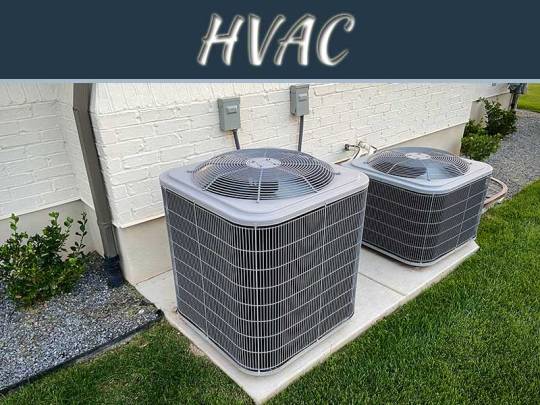
Exploring The Different HVAC Brands
Exploring different HVAC brands can help narrow down the best system for your home. Whether you are looking for energy efficiency, comprehensive warranties, or expert installation services, there's an HVAC brand for you.
3 notes
·
View notes
Text

Home HVAC Maintenance Tips: Keep doors and windows closed when your air conditioning is on to prevent warm air from entering your home.
To get a quote for repair, replacement or installation of HVAC systems by a local contractor in your city/state call 📱 833.633.1835 they are waiting to help you with your project.
CALL —> enter zip code —> get connected you to a contractor!!! www.homebasehelpers.pro
** We are a marketing agency, affiliate, or influencer paid to locate customers for the professional contractor(s) in your area.
HVAC Contractors can help with:
Thermostat, duct cleaning, HVAC, repair, air conditioning, HVAC contractor, heating and air-conditioning unit, HVAC system, HVAC installation, furnace repair AC repair, AC maintenance, heating repair, heating maintenance, heat, wave, heating, cooling, thermostat installation,
How to install, how to repair, how to maintain, how to service, pilot lights,
HVAC Systems & Parts:
Air-conditioning units, thermostats, electrical plugs, intake and outtake vents, ductwork, furnace systems, Freon, pilot lights, baseboard heat, pressure switch, heat unit, heat, element, cooling element, refrigerant.
We can connect you to Contractors in all of USA some key areas are:
North Florida, South Florida, Northwest Texas, Littleton San Francisco, San Diego, Stockton, Jefferson City, St. Louis, Kansas City, Dallas, Lincoln, Mills, Washington, Jacksonville, Cedar Rapids Iowa, Louisiana, Cherryville, North Carolina, Cedar Rapids, Iowa, prosper, Texas, Rockford, Illinois, Denver, Colorado, Phoenix, Arizona, Houston, Texas, Oklahoma City, Tulsa, Oklahoma, Missouri, Arkansas, Texas, Georgia, Oklahoma, Virginia, Iowa, Oklahoma, Illinois, Virginia
#hvac services#hvac repair#hvac contractor#hvac#hvac installation#hvac company#hvac maintenance#hvac systems#home tips#home renovation#home improvement#home remodeling#home#custom remodel#remodeling companies#interior remodel
0 notes
Text
Beat the Heat & Chill the Bills: Your Guide to Choosing the Perfect HVAC System
Is your current HVAC system leaving you feeling hot and bothered in the summer and shivering in the winter?
Maybe your energy bills are skyrocketing, and you’re looking for ways to save.
Choosing the right HVAC system is crucial for year-round comfort and controlling your home’s energy consumption.
This guide will help you with the knowledge to navigate the different options and make an informed decision for your needs.
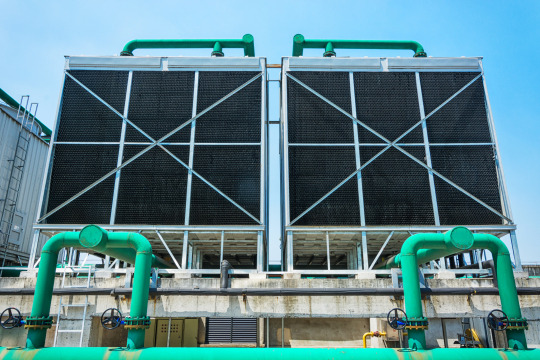
Ducted AC Systems: A Classic Choice for Even Temperatures
Ducted AC systems remain famous for creating consistent and comfortable temperatures throughout a building. Here’s a closer look at the benefits, specifications, and suitability of ducted AC systems:
Benefits:
Even Temperature Distribution: Ducted AC systems distribute cool air evenly throughout a space. This is achieved through a network of ducts that snake through the ceiling, walls, or floors, delivering conditioned air to various rooms. Unlike single-room AC units, ducted systems eliminate hot or cold spots, ensuring a uniform level of comfort in every corner.
Ideal for Multi-Room Applications: Ducted AC systems are perfect for multi-room buildings like houses or large offices. A single central unit cools the entire structure, eliminating the need for individual AC units in each room. This simplifies temperature control and creates a more streamlined aesthetic look.
Powerful Cooling for Larger Areas: Ducted AC systems boast significant cooling capacity. They are well-equipped to handle the demands of more significant buildings with extensive square footage. This makes them ideal for residential spaces like sprawling ranch homes or commercial applications like warehouses and retail stores.
Specifications:
Ductwork Installation: Unlike some other AC system types, ducted systems require ductwork installation throughout the building. This network of ducts can be intrusive in existing structures, potentially requiring modifications to walls, ceilings, or floors. However, ductwork can be seamlessly integrated during the building process for new construction projects.
Regular Maintenance: To ensure optimal airflow and prevent dust buildup within the ducts, ducted AC systems require regular maintenance. This typically involves professional cleaning of the ducts and servicing the central unit. Proper maintenance maximizes efficiency and helps maintain good indoor air quality.
Suitability:
Residential Applications: Ducted AC systems are a prominent choice for various residential applications. They are well-suited for larger homes with multiple bedrooms, living areas, and floors. The even temperature distribution and powerful cooling capacity ensure year-round comfort for the entire family.
Commercial Applications: Ducted AC systems excel in various commercial settings. They are ideal for office buildings, restaurants, retail stores, and other commercial spaces that require consistent cooling throughout a large area. The ability to integrate the ductwork seamlessly into the building’s structure makes it a practical and aesthetically pleasing option.
Panel AC Systems: Discreet Comfort for Smaller Areas
Panel AC units are a favorite choice for low-profile cooling solutions. These compact units offer several advantages, making them ideal for specific applications. Let’s delve deeper into panel AC systems' benefits, specifications, and suitability.
Benefits:
Discreet and Seamless Integration: Unlike traditional AC units, panel ACs are designed to blend seamlessly into your existing space. They are typically mounted flush against ceilings or walls, creating a minimalist aesthetic that complements your décor. This is particularly beneficial in areas where a bulky AC unit might be visually distracting.
Targeted Cooling for Smaller Spaces: Panel AC units excel at efficiently cooling targeted areas. Their compact size and focused airflow make them ideal for smaller rooms or specific zones within a larger space. This targeted approach allows you to cool frequently used areas, like a bedroom or home office, without unnecessarily cooling unused building portions.
Enhanced Aesthetics: For design-conscious individuals, panel AC systems offer a significant aesthetic advantage. Their discreet design eliminates the need for bulky window units or unattractive standalone ACs. This allows you to maintain a clean and modern look in your space without sacrificing comfort.
Specifications:
Efficient Cooling Capacity: While not designed for expansive areas, panel ACs offer efficient cooling capacity for their size. They are well-suited for rooms like bedrooms, sunrooms, or small offices. The focused airflow ensures effective cooling within the targeted zone.
Relatively Simple Installation: Panel AC units are generally easier to install than ducted AC systems. Their compact size and self-contained nature often allow quicker installation with minimal disruption to your existing space. This makes them a good option for situations requiring a faster cooling solution.
Suitability:
Residential Applications: Panel AC systems perfectly fit various residential applications. They excel in bedrooms, where their quiet operation and targeted cooling ensure a comfortable sleep environment. Sunrooms, often prone to overheating, benefit significantly from the focused cool air provided by panel ACs. Small offices or hobby rooms can also leverage panel ACs for efficient cooling without sacrificing valuable floor space.
Cassette AC Units: A Flexible Choice for Comfort and Aesthetics
Cassette AC units, known for their discreet ceiling-mounted design, offer a compelling blend of powerful cooling, even airflow distribution, and aesthetic appeal. Let’s explore this versatile HVAC solution's advantages, specifications, and suitability.
Benefits:
Powerful Cooling and Even Airflow: Cassette AC units pack a punch when it comes to cooling capacity. They are well-suited for moderate to large-sized spaces, effectively distributing cool air in all directions thanks to their multi-directional airflow design. This ensures consistent comfort throughout the room, eliminating hot or cold spots.
Seamless Integration with Drop Ceilings: Cassette AC units are designed for seamless integration. The unit sits flush with the ceiling grid, maintaining a clean and uncluttered aesthetic. This is particularly beneficial in commercial settings like offices and retail stores where maintaining a professional appearance is essential.
Flexibility in Room Design: Unlike traditional AC units that require specific wall placements, cassette ACs offer more flexibility in room design. Since they are mounted on the ceiling, you don’t have to worry about their placement affecting furniture arrangement or blocking valuable wall space.
Specifications:
Drop Ceiling Requirement: A drop ceiling is a key consideration for cassette AC units. The unit integrates within the ceiling grid, so standard ceiling heights might not be suitable. If your space lacks a drop ceiling, alternative AC system types might be more appropriate.
Professional Installation Recommended: While some cassette AC units might appear user-friendly for installation, professional installation is highly recommended. Certified HVAC technicians ensure proper placement, electrical connections, and refrigerant lines are handled safely and efficiently for optimal performance.
Suitability:
Commercial Applications: Cassette AC units excel in various commercial environments. Offices benefit from the powerful cooling, even airflow, and aesthetics that complement a professional setting. Similarly, retail stores can leverage cassette ACs to maintain consistent comfort for employees and customers throughout the space. Additionally, restaurants with drop ceilings can utilize cassette ACs to create a comfortable dining experience.
Larger Residential Applications: Cassette AC units can also be suitable for larger residential areas with drop ceilings. This includes basements converted into living spaces, sunrooms, or family rooms where powerful cooling and even airflow distribution are desired. However, they might be better for standard ceiling heights in bedrooms or smaller living areas.
Conclusion
Now that you’ve explored the different types of HVAC systems and their applications, you’re well on your way to selecting the perfect solution for your home or business. Remember, the ideal choice depends on several factors:
Space: Consider the size and layout of the area you want to cool. Ducted AC systems excel in multi-room applications, while panel ACs are ideal for smaller spaces. Cassette ACs balance powerful cooling and flexibility in moderate to large-sized areas with drop ceilings.
Cooling Needs: Evaluate your cooling requirements. Do you need a system for consistent cooling throughout an ample space, or are you looking for targeted cooling in specific zones?
Budget: HVAC systems vary in price depending on the type, capacity, and features. Consider the initial investment and the long-term operational costs, including energy efficiency.
Aesthetics: If maintaining a clean, modern look is essential, consider panel or cassette AC units that integrate seamlessly into your space.
Consulting a qualified HVAC professional is the most crucial step. They can assess your needs, perform a Manual J calculation to determine the correct size system, and recommend the most suitable option for optimal comfort, efficiency, and budget. With the proper information and professional guidance, you can choose the perfect HVAC system to keep your space comfortable and relaxed all year round.
#hvacexperts#hvac technician#commercial hvac#hvac replacement#hvaclife#hvac systems#hvac solutions#hvac software#hvac services#hvac repair
1 note
·
View note
Text
How to Clean Your Air Conditioning Unit Like a Pro
Did your air conditioning unit perform less efficiently than it used to? It might be time for a good cleaning. Regular cleaning of your AC unit ensures optimal performance and extends its lifespan. In this guide, we'll walk you through the steps to clean your air conditioning unit like a professional, ensuring it works effectively throughout the year.
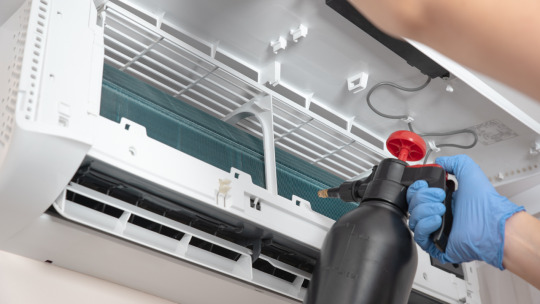
Why Cleaning Your Air Conditioning Unit Is Important
As time passes, dust and debris may build up within your air conditioning system., clogging filters and hindering airflow. This reduces the unit's efficiency and compromises the quality of air circulating in your home. Additionally, a dirty AC unit is more prone to breakdowns and may require costly repairs if addressed quickly.
Step-by-Step Guide to Cleaning Your Air Conditioning Unit
Turn Off Power: Before you start cleaning, ensure the power to your AC unit is turned off at the main breaker to avoid any accidents.
Remove Debris: Carefully remove leaves, twigs, or other debris from the unit's exterior. Use a vacuum to clean the fins and coils gently.
Clean or Replace Filters: Air filters trap dust and particles but can become clogged over time. Clean or change your filters according to the manufacturer's instructions. This is typically recommended every 1-3 months.
Clean the Coils: Carefully clean the evaporator and condenser coils using a coil cleaner and a soft brush. Be gentle to avoid damaging the fins.
Check Drainage: Ensure that the condensate drain is clear of any obstructions. A clogged drain can lead to water failure and mold growth.
Inspect Insulation: Check the insulation around refrigerant lines for any signs of damage or wear. Replace or repair as needed to prevent energy loss.
Straighten Fins: Use a fin comb to straighten any bent fins on the exterior of the unit. This helps maintain proper airflow.
Trim Vegetation: Trim back any vegetation or shrubs around the AC unit to ensure proper airflow and prevent debris buildup.
Schedule Professional Maintenance: While regular cleaning can help maintain your AC unit, it's also essential to schedule professional maintenance at least once a year. A certified technician can thoroughly inspect and tune up to keep your unit running smoothly.
FAQs
Q1: How often should I clean my air conditioning unit?
A1: Air conditioning units should be cleaned at least once a year. However, you may need to clean them more frequently if you live in a dusty area or notice reduced airflow.
Q2: Can I clean my AC unit or hire a professional?
A2: While some maintenance tasks can be done by homeowners, such as cleaning filters and removing debris, it's recommended to have a professional technician perform a comprehensive cleaning and inspection annually. They have the expertise and tools to identify potential issues and ensure your AC unit operates efficiently.
By adhering to these guidelines and integrating consistent upkeep into your schedule, you can effectively maintain your air conditioning system, guaranteeing refreshing comfort throughout scorching months and enhancing indoor air quality for your household.
#ac system#air conditioner cleaning#cooling#hvac systems#air quality#air conditioning unit#indoor air quality#air conditioning#ac maintenance#hvac maintenance#hvac installation#hvac repair#efficiency#hvac system#home
0 notes
Text
Why Dallas, TX, Residents Choose HVAC Maintenance Plans
Living in Dallas, Texas, means experiencing various weather conditions throughout the year, from scorching summers to chilly winters. In such climates, having a reliable HVAC system is crucial for maintaining comfort. While many homeowners in Dallas understand the importance of keeping their heating, ventilation, and air conditioning (HVAC) systems in top condition, not all know the significant benefits of HVAC maintenance plans.
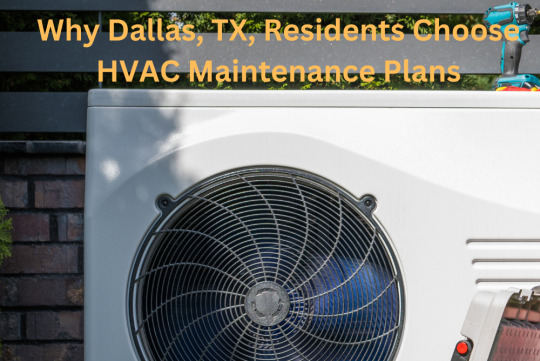
The Importance of HVAC Maintenance Plans
HVAC maintenance plans are comprehensive service agreements offered by reputable HVAC companies to ensure the optimal functioning of your heating and cooling systems. These plans typically include regular inspections, tune-ups, and necessary repairs to keep your HVAC system operating efficiently and extend its lifespan.
For residents of Dallas, where HVAC systems often work overtime to combat extreme temperatures, investing in a maintenance plan can be a game-changer. Here's why:
Improved Energy Efficiency: A well-maintained HVAC system operates more efficiently, lowering energy bills. By regularly cleaning and tuning your system, technicians can identify and address issues causing it to work harder than necessary, ultimately saving you money on utility costs.
Enhanced Comfort: Dallas summers can be brutally hot, and winters can bring unexpected cold snaps. With an HVAC maintenance plan, you can rest assured that your system will be prepared to keep your home comfortable year-round. Regular maintenance helps prevent breakdowns and ensures consistent airflow and temperature regulation throughout your home.
Extended Lifespan: Like any other mechanical system, HVAC units require regular upkeep to perform at their best and avoid premature failure. By adhering to a regular maintenance schedule outlined in a maintenance plan, you can greatly extend the longevity of your HVAC system, thereby postponing expensive replacements in the long run.
Priority Service and Discounts: Most HVAC maintenance plans have added perks, such as priority service in emergencies and discounts on repairs and replacement parts.
Peace of Mind: The most valuable benefit of an HVAC maintenance plan is the peace of mind it offers. Knowing that trained professionals are regularly inspecting and servicing your system can alleviate the stress and worry that often come with home ownership.
In Dallas, where extreme weather conditions can take a toll on HVAC systems, investing in a maintenance plan is a proactive step toward ensuring year-round comfort and efficiency in your home.
FAQs:
Why is regular HVAC maintenance important, especially in Dallas, TX?
Regular HVAC maintenance is crucial for several reasons, especially in Dallas, where the climate can be harsh and unpredictable. Keeping your HVAC system well-maintained ensures it operates efficiently, saving you money on energy bills. Additionally, routine maintenance helps prevent unexpected breakdowns, extends the lifespan of your system, and ensures optimal comfort year-round, regardless of the weather outside.
What does an HVAC maintenance plan typically include?
HVAC maintenance plans vary depending on the provider, but they generally include regular inspections, tune-ups, and necessary repairs to keep your system in top condition. It may involve cleaning or replacing air filters, checking thermostat settings, lubricating moving parts, inspecting ductwork for leaks, and testing the system's efficiency. Some maintenance plans also offer additional benefits such as priority service, repair discounts, and extended warranties for added peace of mind.
#hvac systems#Dallas#hvac maintenance#hvac services#acrepair#hvac#ac installation#home & lifestyle#hvac repair#hvac installation#ac service#hvac contractor#texas#heating
0 notes
Text
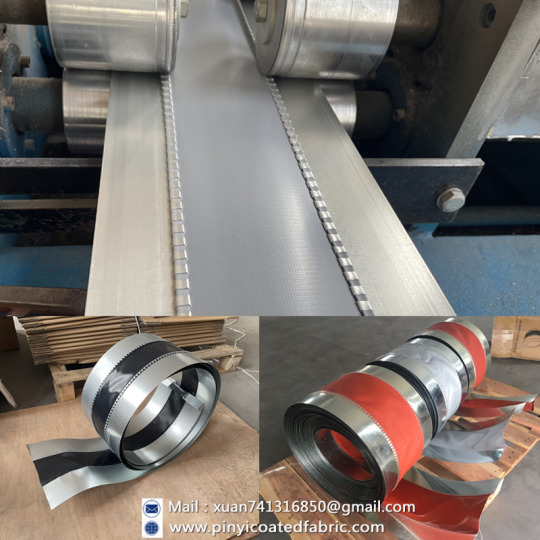
The export order of Flexible Duct Connector to Vietnam began again, this time with two specifications, 45-75-45mm, 75-140-75mm.
#Hvac#ducting#HVAC Ducts#ductwork#fans#ventilation ducts#compensator#fabric compensators#Flexible connectors#air ducts#HVAC systems#pipework
0 notes
Text
RN Aircon - Your Trusted HVAC Solution Provider for Air Conditioning Services and Solutions
Discover top-notch air conditioning services at RN Aircon. We specialize in HVAC solutions, offering expert installation, maintenance, and repair services. Trust us for reliable and efficient cooling solutions tailored to your needs. Contact us for a comfortable and well-ventilated living or working space.
1 note
·
View note